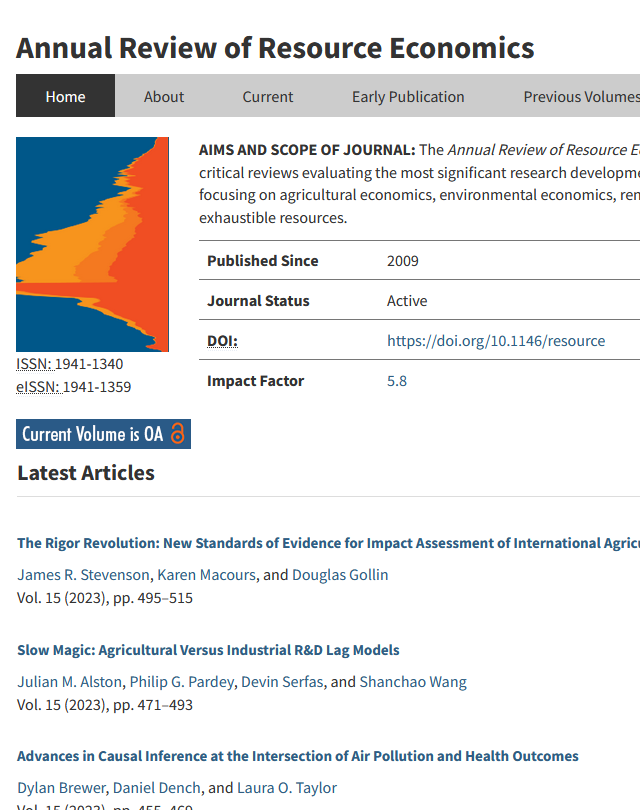在发展中国家培养人力资本的早期养育干预措施
IF 8.4
2区 经济学
Q1 AGRICULTURAL ECONOMICS & POLICY
Annual Review of Resource Economics
Pub Date : 2022-06-13
DOI:10.1146/annurev-resource-111220-010215
引用次数: 1
摘要
在发展中国家,每三个5岁以下儿童中就有一个生活在阻碍人力资本发展的环境中。在本研究中,我们调查了有关5岁前父母培训计划的文献,旨在增加发展中国家父母对人力资本积累的投资。我们的综述集中于父母培训项目(即儿童心理刺激和/或营养培训)的实施和有效性。我们强调驱动治疗引起的人力资本结果变化的机制,并确定影响疗效和有效性的需求侧和供给侧行为。尽管文献中包含了与成功干预相关的项目特征的证据,但还需要进一步的人力资本形成动态的证据、治疗影响中长期持续性的文件,以及大规模项目的实施和评估研究,以描绘一个可扩展和包容的项目,提供长期治疗影响。《资源经济学年度评论》第14卷的最终在线出版日期预计为2022年10月。修订后的估计数请参阅http://www.annualreviews.org/page/journal/pubdates。本文章由计算机程序翻译,如有差异,请以英文原文为准。
Early Parenting Interventions to Foster Human Capital in Developing Countries
One out of every three children under age 5 in developing countries lives in conditions that impede human capital development. In this study, we survey the literature on parenting training programs implemented before age 5, with the aim to increase parental investment in human capital accumulation in developing countries. Our review focuses on the implementation and effectiveness of parenting training programs (i.e., training in child psychosocial stimulation and/or training about nutrition). We emphasize the mechanisms that drive treatment-induced change in human capital outcomes and identify the demand- and supply-side behaviors that affect efficacy and effectiveness. Although the literature includes evidence on program features that are associated with successful interventions, further evidence on the dynamics of human capital formation, documentation of medium- to long-term persistence of treatment impacts, and research on the implementation and evaluation of programs at scale are needed to delineate a scalable and inclusive program that provides long-term treatment impacts. Expected final online publication date for the Annual Review of Resource Economics, Volume 14 is October 2022. Please see http://www.annualreviews.org/page/journal/pubdates for revised estimates.
求助全文
通过发布文献求助,成功后即可免费获取论文全文。
去求助
来源期刊

Annual Review of Resource Economics
AGRICULTURAL ECONOMICS & POLICY-
CiteScore
9.40
自引率
0.00%
发文量
34
期刊介绍:
The Annual Review of Resource Economics provides authoritative critical reviews evaluating the most significant research developments in resource economics, focusing on agricultural economics, environmental economics, renewable resources, and exhaustible resources.
 求助内容:
求助内容: 应助结果提醒方式:
应助结果提醒方式:


